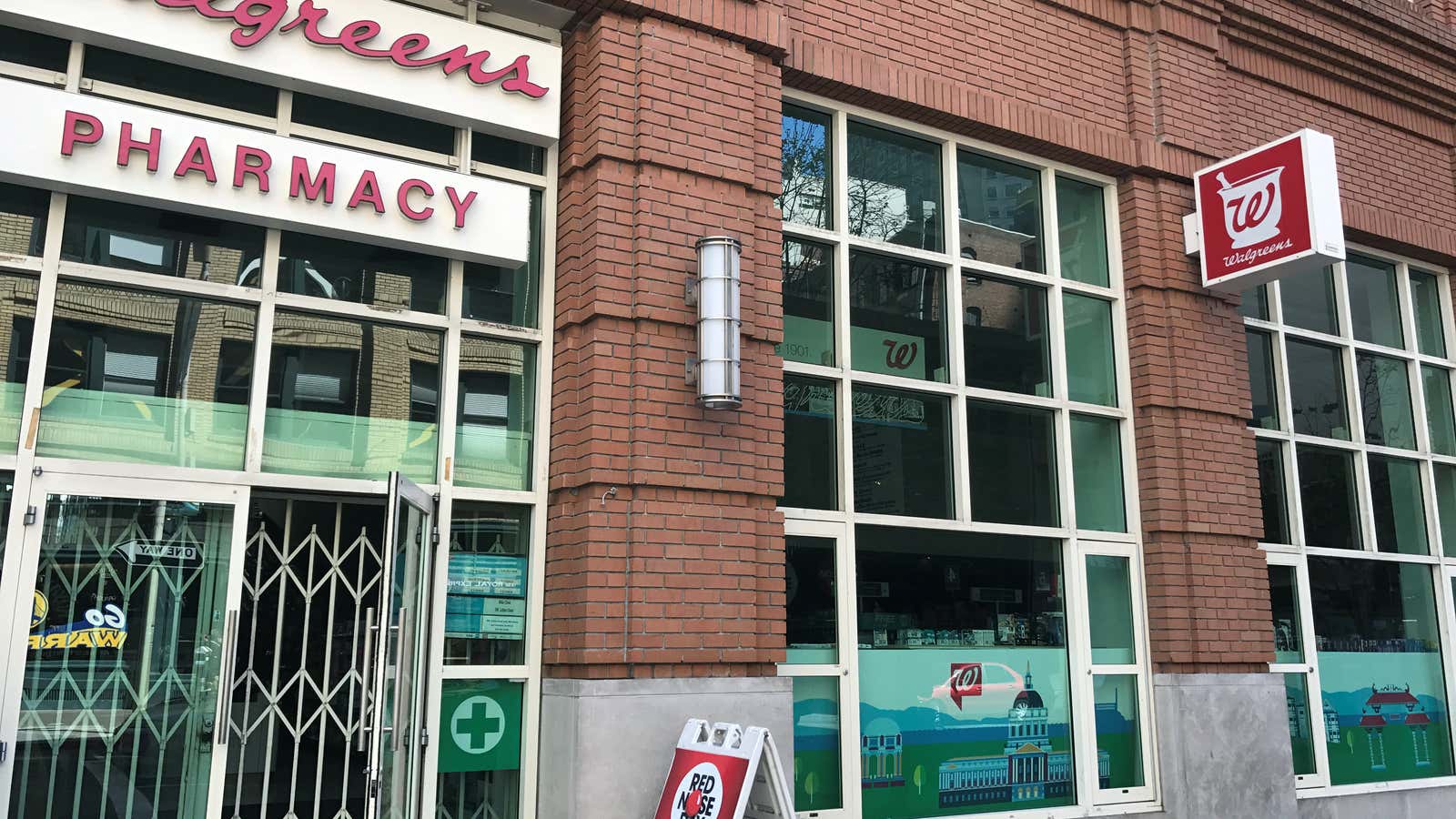Walgreens Boots Alliance recently announced it will close five stores in San Francisco due to what the company says is ‘organized retail theft.’ Theft in the Bay Area has risen to five times the national average for Walgreens stores in the past few months, the company said, a statistic that has grabbed national headlines and sparked discussion over shoplifting in the city.
San Francisco city officials, journalists, and criminal justice experts have pushed back on this assertion, raising questions about why Walgreens decided to close the stores. San Francisco Mayor London Breed repudiated Walgreens’ claim, saying that the real reason might be that the stores aren’t generating enough revenue and that the city is “saturated” with Walgreens outlets.
Walgreens said increased investments in security measures to combat shoplifting have proven costly. “To help combat this retail theft, we increased our investments in security measures in stores across the city to 46 times our chain average in an effort to provide a safe environment. This is primarily a result of our participation in the city’s 10B program to hire off-duty SFPD officers to have a presence in our stores,” said Phil Caruso, a Walgreens spokesperson, in an email to Quartz. (10-B is a program that allows businesses and events to hire off-duty San Francisco police department officers to work for overtime pay.)
In the statement, Caruso points out that the main concern is ‘organized retail crime’ in which professional thieves steal goods for resale on digital marketplaces. In July, California governor Gavin Newsom signed a bill to reinstate a task force dedicated to combating organized retail theft rings.
City officials are skeptical
Part of the skepticism from San Francisco officials and the public stems from Walgreens’ 2019 SEC filing that shows a plan to close at least 200 stores across the US as part of a cost-cutting initiative. The drugstore chain lost $1.7 billion during Covid-19 lockdowns and will likely experience a slow recovery.
“So is Walgreens closing stores because of theft or because of a pre-existing business plan to cut costs and increase profits by consolidating stores and shifting customers to online purchases?” San Francisco supervisor Dean Preston tweeted.
Additionally, the San Francisco Chronicle reported that Walgreens stores that are closing had only seven reported shoplifting incidents this year, and the five stores set to close had fewer than two reported shoplifting incidents per month on average. Many items in Walgreens—including toothpaste, shampoo, and allergy medications—are stored under lock and key, requiring an employee to unlock the cabinet for the customer. The Chronicle also reported that despite media reports, reported shoplifting incidents are decreasing.
What is Prop 47?
Some observers blame the Walgreens closures on Proposition 47, a 2014 referendum designed to reduce some felony crimes to misdemeanors. The measure was hailed by criminal justice advocates as a way to curb incarceration for lower-level crimes or “crimes of survival,” often perpetrated by unhoused people or people living in poverty. A common misconception, however, is that Proposition 47 prevents the arrest and prosecution of people who commit retail theft. The referendum merely downgraded property theft of up to $950 to a misdemeanor, rather than a felony. Retailers unsuccessfully tried to roll back Proposition 47 in 2020.
Criminal justice researchers argue that a better approach to curbing retail theft is to diagnose the real problems. “There’s a perception that Prop 47 is responsible for these thefts,” says Charis Kubrin, a professor of criminology, law, and society at the University of California, Irvine. “There are so many other concurrent things happening along with Prop 47. We have a pandemic, we have a recession and rising poverty and inequality and unemployment. We have mobility, people moving in and out of San Francisco that impacts traffic, and people shopping at Walgreens.”
There is also concern from criminal justice advocates that this narrative pushed by Walgreens will ignite efforts to recall San Francisco’s progressive district attorney Chesa Boudin and hinder criminal justice reform in the city. “What you have is people supporting policies or creating policies, not based on what the data show, but based rather on fear of crime, moral panics, and the politicization of these policies,” Kubrin said.
